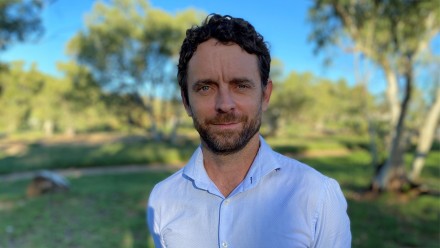Thesis Proposal Review: Personalised and contingency-based interventions for suicide risk
Share
About
Former serving military veterans have higher rates of suicidality and death by suicide compared to the general population. Recent data released by the Australian Institute of Health and Welfare (AIHW) shows that the suicide rate for ex-serving males is 27% higher and for ex-serving females is 107% higher (or 2.07 times) compared with the Australian population. Research also shows that 1 in 5 transitioned ADF personnel report some form of suicidal ideation, plan or attempt, with more than one-quarter reporting they feel their life is not worth living.
Studies of suicide prevention interventions in veteran populations provide inconclusive evidence to support their use, and treatment approaches targeting suicidal ideation and behaviour specifically, rather than simply treating risk factors such as mental illness alone, is important. Risk assessment methods have been shown to be sensitive predictors of subsequent suicide and suicide attempts, but the frequency of false positives limits their clinical utility. Further research to refine these methods and examine clinical application, while enhancing clinician skills, is needed.
This PhD seeks to overcome the limitations of the current assessment and intervention approaches by testing the effectiveness of a personalised and contingency-based approach to managing individuals at risk for suicide in an Australian veteran community sample. The research findings will have significance for the welfare and wellbeing of the Australian veteran community. They may inform the development of evidence-based practice guidelines and policies to improve the identification and responses to suicide risk.
Bio
 Jennifer Veitch is a Psychologist with extensive experience in clinical leadership, working at the forefront of service-level responses to at-risk individuals and families. Recently embarking on her PhD to contribute to the body of research on interventions for suicide risk in the Australian veteran community, Jennifer is grounded and driven by her passion for person-centred care. Jennifer is an Executive Director within the Mental Health and Wellbeing Services Division of the Department of Veterans’ Affairs (DVA), where she has inspired cultural change through transformational business strategies and led service innovation with the introduction of multiple reforms, including those targeted toward improving the identification and responses to at-risk client groups.
Jennifer Veitch is a Psychologist with extensive experience in clinical leadership, working at the forefront of service-level responses to at-risk individuals and families. Recently embarking on her PhD to contribute to the body of research on interventions for suicide risk in the Australian veteran community, Jennifer is grounded and driven by her passion for person-centred care. Jennifer is an Executive Director within the Mental Health and Wellbeing Services Division of the Department of Veterans’ Affairs (DVA), where she has inspired cultural change through transformational business strategies and led service innovation with the introduction of multiple reforms, including those targeted toward improving the identification and responses to at-risk client groups.












